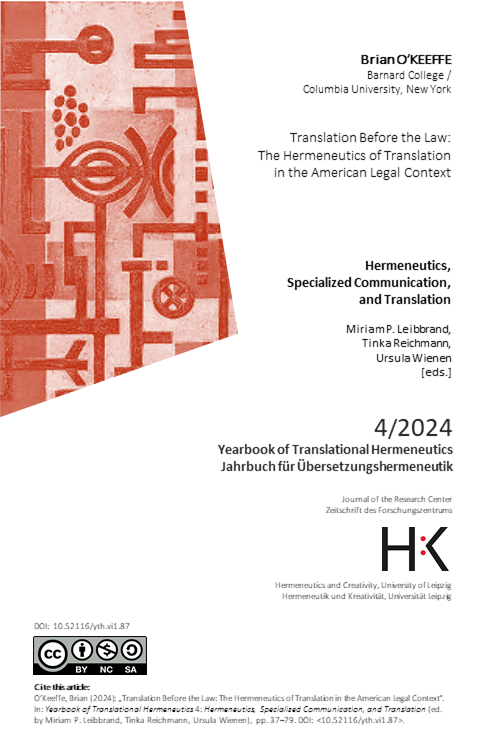Translation Before the Law: The Hermeneutics of Translation in the American Legal Context
DOI:
https://doi.org/10.52116/yth.vi1.87Keywords:
Translation, Legal hermeneutics, American Constitutional Law, Lawrence Lessig, Paul BrestAbstract
This essay examines how American scholars, lawyers and judges in¬terpret the Constitution. Discussed is how anxieties arise in view of interpretations deemed to be too free to serve the interests of law, and how the solution to that putative hermeneutic freedom is an imposition of interpretive rules. But those rules are profiled in terms of an appeal to “fidelity,” and that appeal is relayed to the topic of translation. My essay offers a critical assessment of the problematic parallel made between legal interpreters and translators: the ethical principle translators are presumed to obey, that of fidelity, is conveniently––but too conveniently––transferred to legal interpreters. Despite the deep misgivings one might have about that presumption, and the equivalence model of translation it supposes, at issue for legal scholars is ensuring fidelity to the original meaning of the Constitution, and fidelity to the original intentions of those who wrote that foundational text.

Downloads
Published
Issue
Section
License
Copyright (c) 2024 Brian O'Keeffe

This work is licensed under a Creative Commons Attribution-NonCommercial-ShareAlike 4.0 International License.
